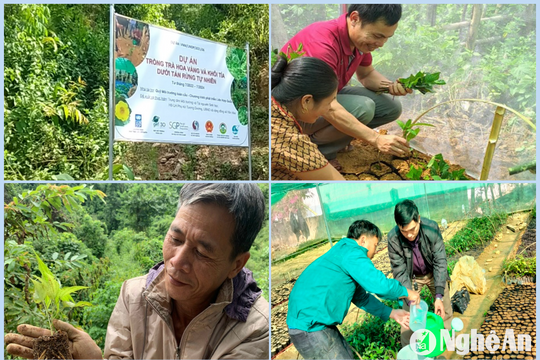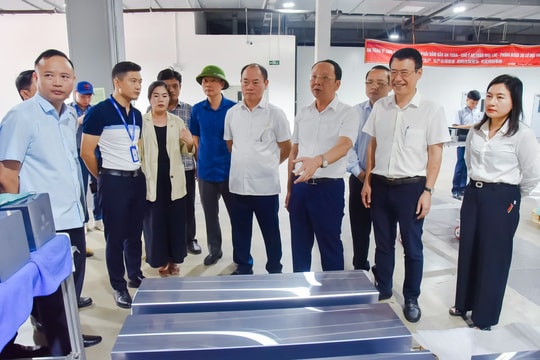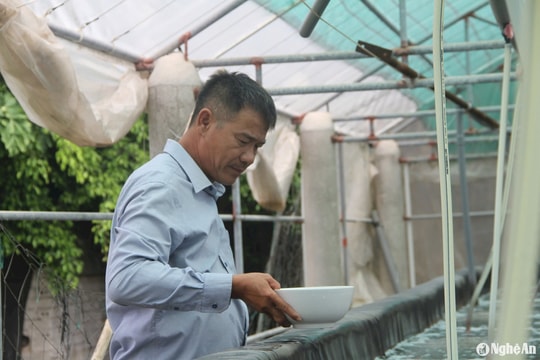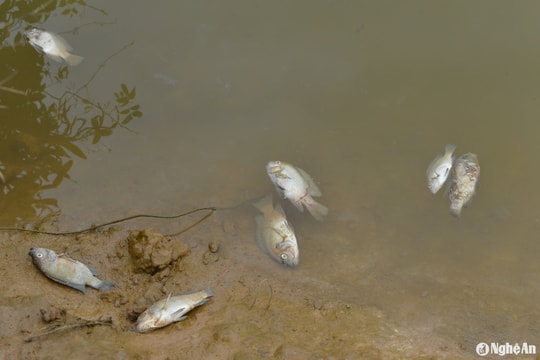Mass shrimp deaths due to pollution, seawater project for shrimp farming still not operational
Faced with the situation of shrimp regularly dying due to disease, shrimp farmers in Quynh Bang commune, Quynh Luu district hope to soon put into operation a seawater supply project.
Farmed shrimp are often infected with diseases.
Quynh Bang Commune is the locality with the largest shrimp farming area in Quynh Luu district with about 100 hectares, of which 86 households regularly raise shrimp. This is the locality where mass shrimp deaths occurred at the end of April 2024, causing significant damage. Therefore, in 2024, the rate of households releasing new shrimp batches decreased compared to previous years, due to concerns that local farming conditions are currently not suitable for shrimp growth.
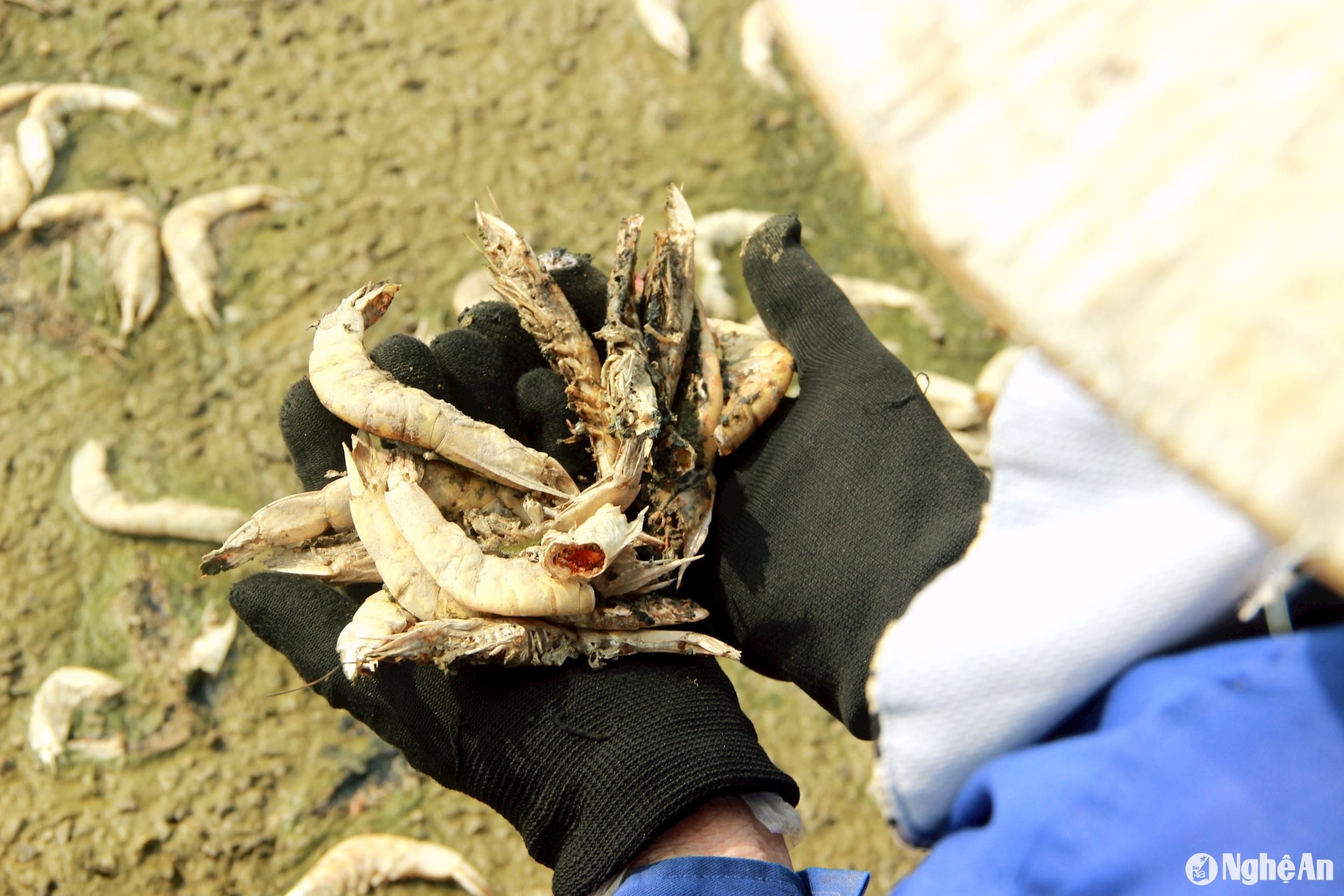
Mr. Ho Dinh Anh, owner of a shrimp pond in Quynh Bang commune, Quynh Luu district, said: For many years, shrimp farming has been often infected with diseases, but never before has shrimp farming been as difficult as this year. Shrimps that had just been released died floating on the water surface within a few days, causing hundreds of millions of dong in damage.
The situation of mass shrimp deaths due to disease infection is not only in Quynh Bang commune in particular, but also in Quynh Luu district in general during the early period of releasing shrimp for the main crop.
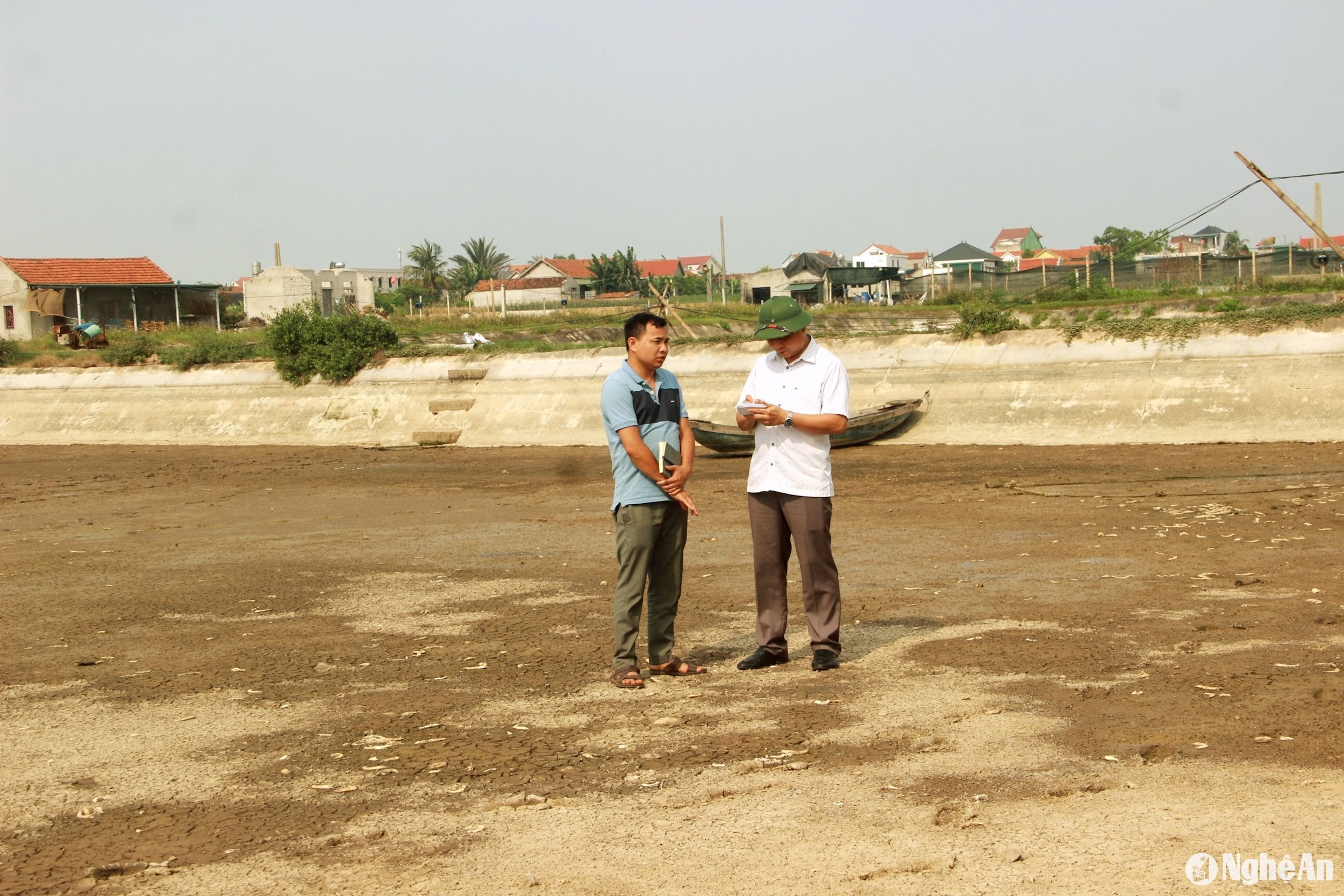
Mr. Vu Van Duong - Chairman of Quynh Bang Commune People's Committee, expressed concern that shrimp farming has been the main occupation of local people for decades. However, shrimp farming has become more and more difficult over time due to shrimp diseases and high mortality rates. In 2023, the rate of shrimp dying from disease after release accounted for 50% of the area, while in 2024, the rate of shrimp dying from disease after release increased to 90% of the area. The reason for shrimp disease is partly due to polluted water sources.
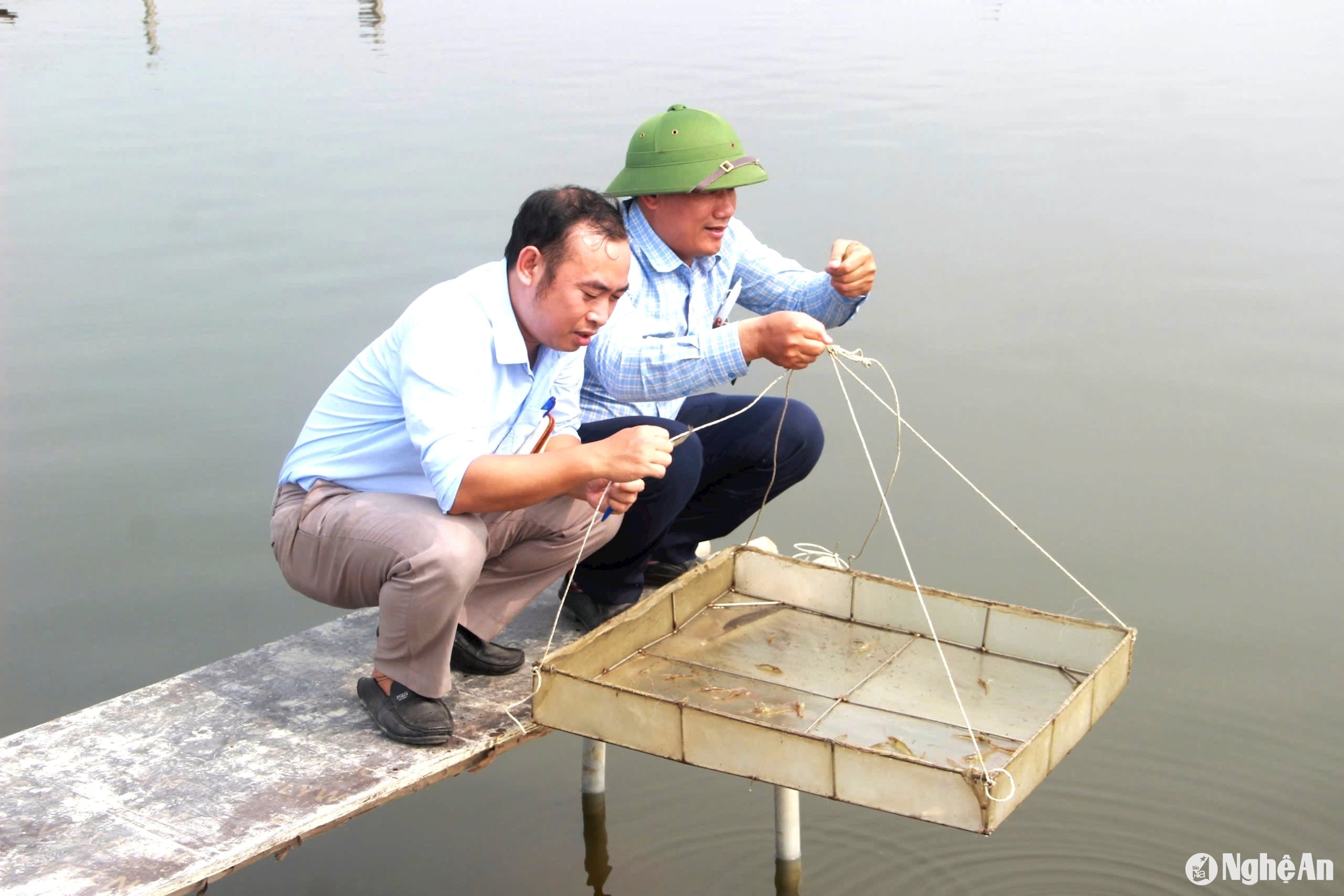
Faced with that situation, in May 2024, the working group of the Veterinary Department of Region 3 and the Department of Livestock and Veterinary Medicine of Nghe An also inspected and concluded the cause of shrimp deaths, emphasizing the floating shrimp breed, especially the infrastructure and polluted water source for shrimp farming, causing the shrimp to lose resistance. Therefore, it is necessary to have a guaranteed water source so that people can feel secure in releasing new shrimp batches and continue to make a living from the profession.
In fact, water resources play an important role in the shrimp farming process. According to research, in Quynh Bang commune, shrimp farming water of households is taken from a centralized reservoir with an area of 3 hectares, capacity of about 30,000m3. From this canal, there are 2 small canals, with pipeline connections to bring water to the shrimp ponds of households. In reality, this water source is polluted, has low salinity (only 5-7 parts per thousand), does not meet the needs of shrimp farming, causing shrimp to grow poorly. Therefore, taking salt water directly from the sea not only ensures suitable salinity, but also minimizes risks in the shrimp farming process.
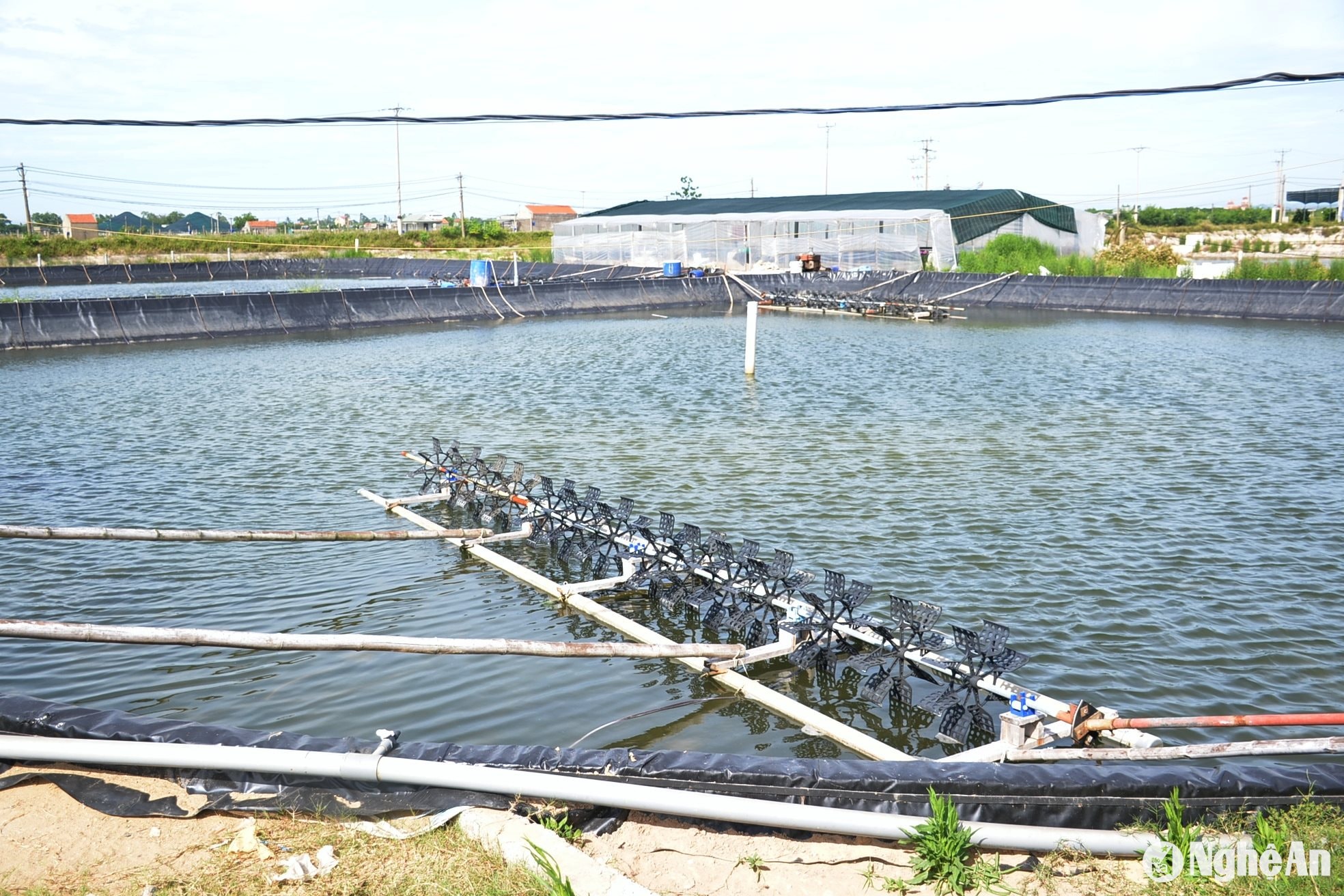
Shrimp farmers in Dong Hung hamlet, Quynh Bang commune said that the top priority is still a source of water to ensure the quality of shrimp farming. When there was information about the project to supply seawater directly to shrimp farming in the area, people were very excited, but until now the system has not been put into use, people still have to get water from canals that do not ensure quality. People's wish is that the project will soon be put into operation so that they can confidently stick to their profession.
Mr. Ho Dang Tam - Director of Quynh Bang General Agricultural Cooperative said: The project of building a seawater supply system for industrial shrimp farming according to VietGAP standards in Quynh Bang commune is very practical, helping people to reduce their worries about polluted water sources in recent years. Having a direct seawater source will help them to be proactive in shrimp farming, clean water will help shrimp to be less susceptible to diseases, and their productivity and output will be higher. However, the project has not been handed over yet, so people are very worried.
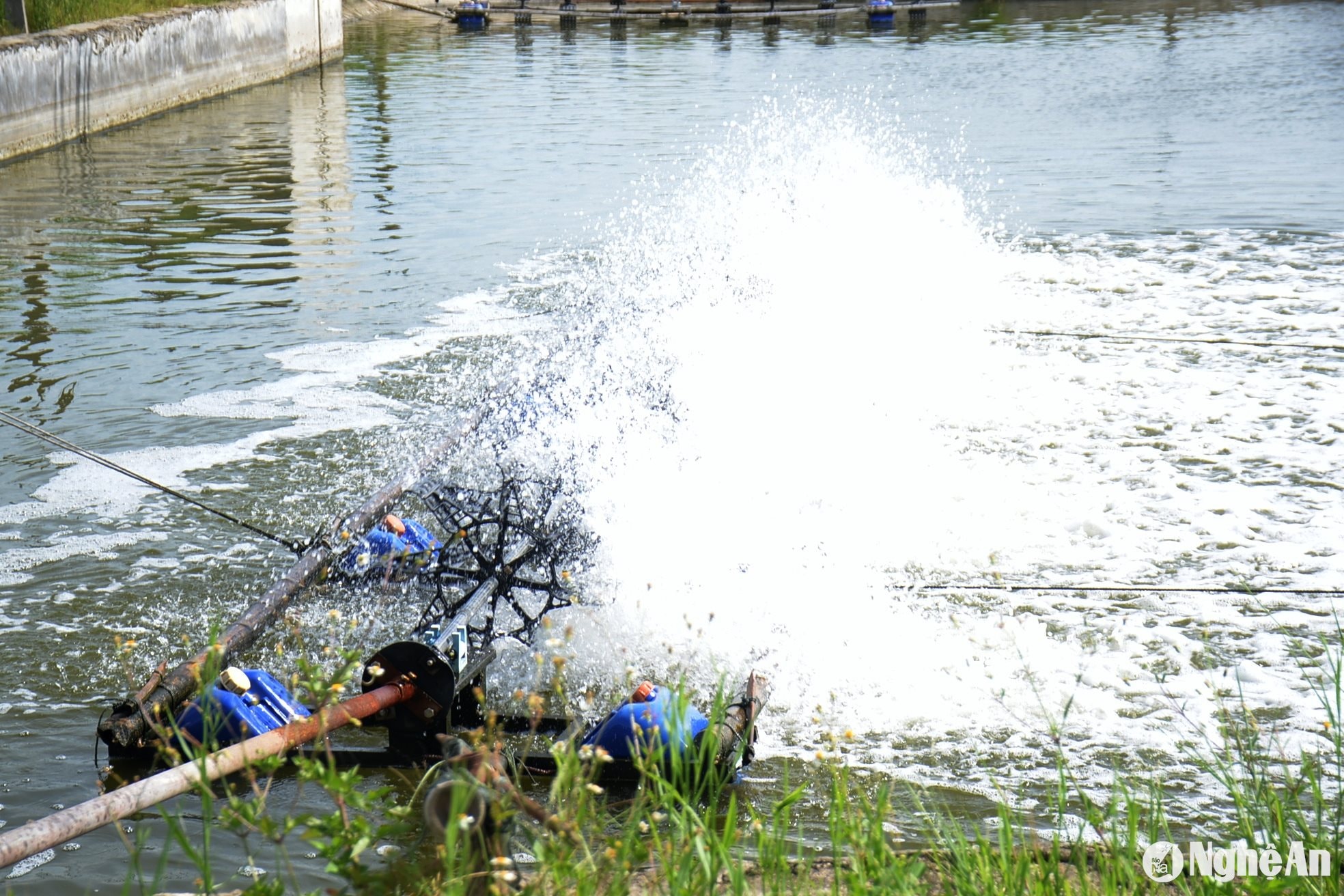
In addition, what people are worried about now is that when the system is put into operation, there will certainly be operating costs, especially electricity for pumping water. In difficult farming conditions, with consecutive losses in recent crops, shrimp farmers in the area hope that the district will support the electricity costs for pumping water into the shrimp ponds. If in case of no financial support, households will pay for the operation of the pumping system themselves, the Cooperative will hold a meeting with households to understand their thoughts and opinions.
“Because it has not been handed over yet, the locality still does not know the specific operating procedures of this pumping station. Therefore, we hope that the district will create conditions for a 5-10 day trial run of the system so that people can understand the operating situation, electricity consumption, water consumption, machine capacity, and from there, have specific cost calculations for long-term shrimp farming,” Mr. Ho Dang Tam added.
What are the options for operating the project?
Mr. Nguyen Xuan Dinh - Vice Chairman of Quynh Luu District People's Committee said: The project to build a seawater supply system for industrial shrimp farming according to VietGAP standards in Quynh Bang commune was invested by the State since the beginning of 2021, with a total investment of 60 billion VND. By the end of 2023, the project was basically completed, with the main items: Site clearance; Pumping system (including suction and supply); power lines; operating house; canal and reservoir.
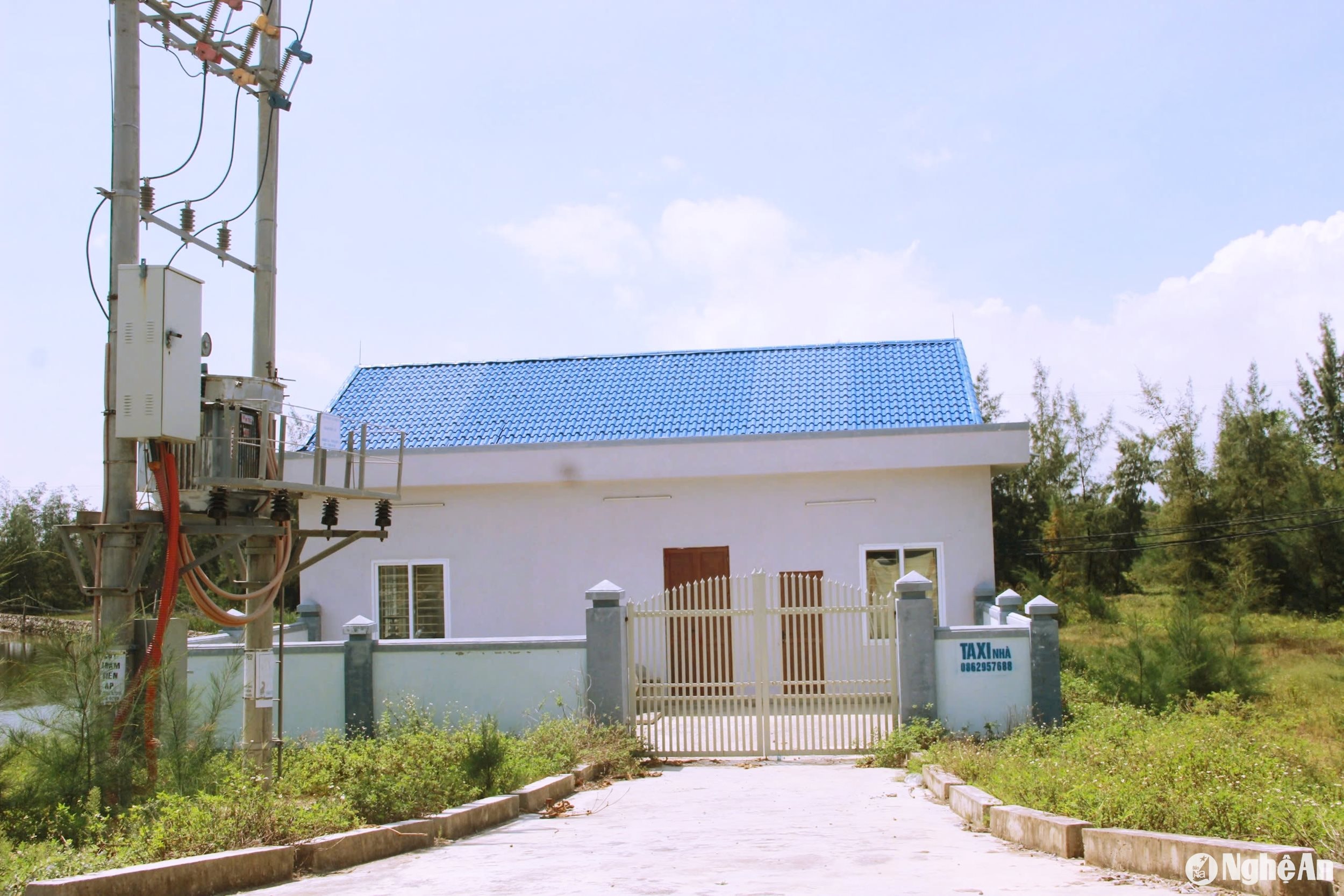
However, due to the need for technical assessment by the Department of Agriculture and Rural Development and the Department of Industry and Trade, the contractor had to fix some necessary details, and it was not until last August that the technical acceptance was approved.
The district has planned to put the project into use in the near future. Accordingly, by January 2025 at the latest, it will be handed over to Quynh Bang commune, specifically to Quynh Bang General Agricultural Cooperative for management and operation. However, before that, the district will conduct a trial operation for a certain period of time to calculate the costs. The current problem is to find a suitable operating mechanism, because if it is completely handed over to the cooperative, there will be no funds for operation.
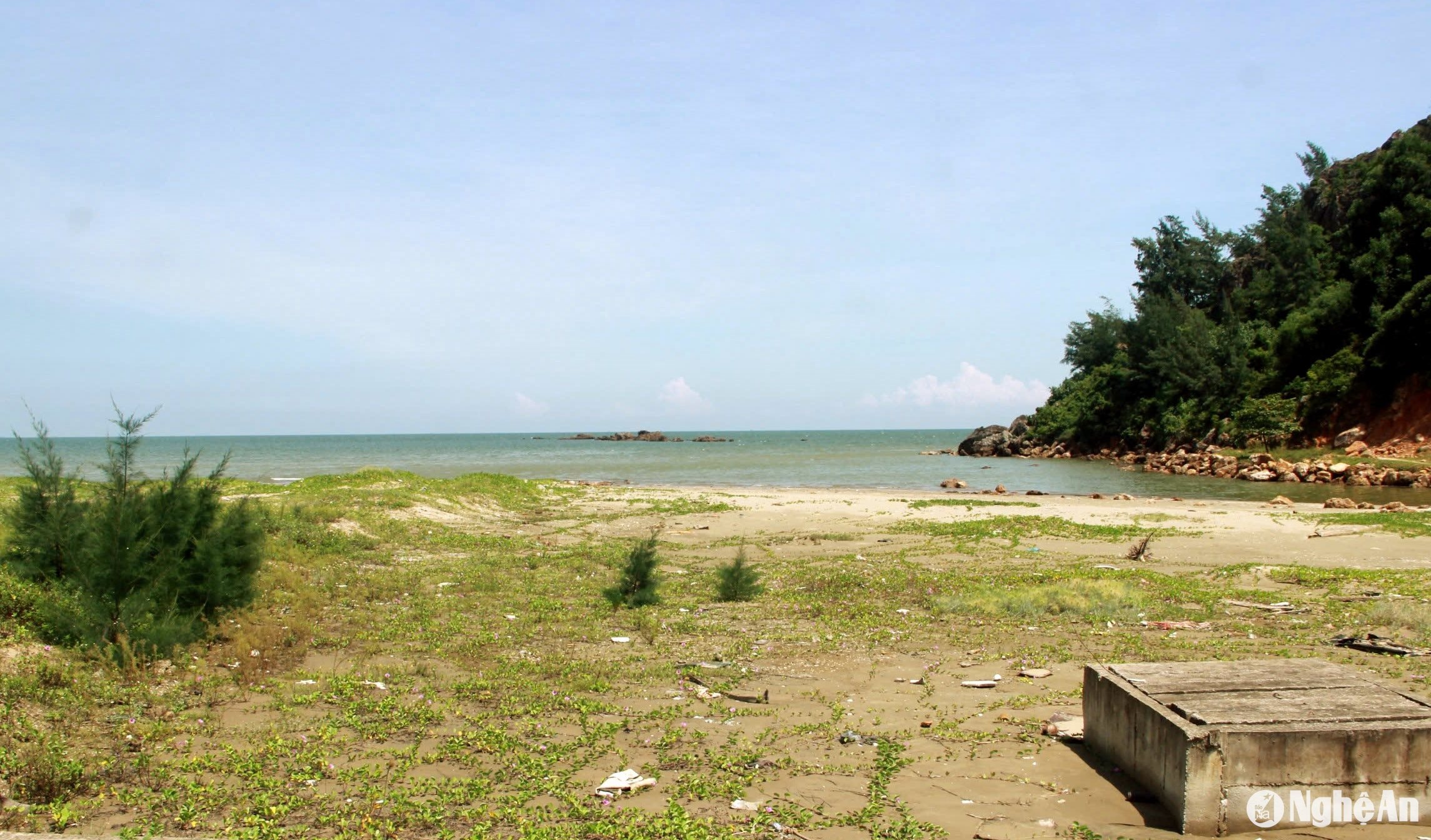
Therefore, the district has considered the proposed plan of using annual irrigation fees to support operations, partly contributed by shrimp farming households. In case the irrigation fees cannot be used, the district will have other suitable solutions.
“The district’s viewpoint is not to hand over the project just to finish it, but after handing it over to the locality for management and exploitation, it must be operated, otherwise it will fall into a state of “shelving”, wasting tens of billions of dong. Even after handover, there must be annual funding for maintenance and upkeep, because the project has a pumping station, which needs periodic maintenance,” said Mr. Nguyen Xuan Dinh.
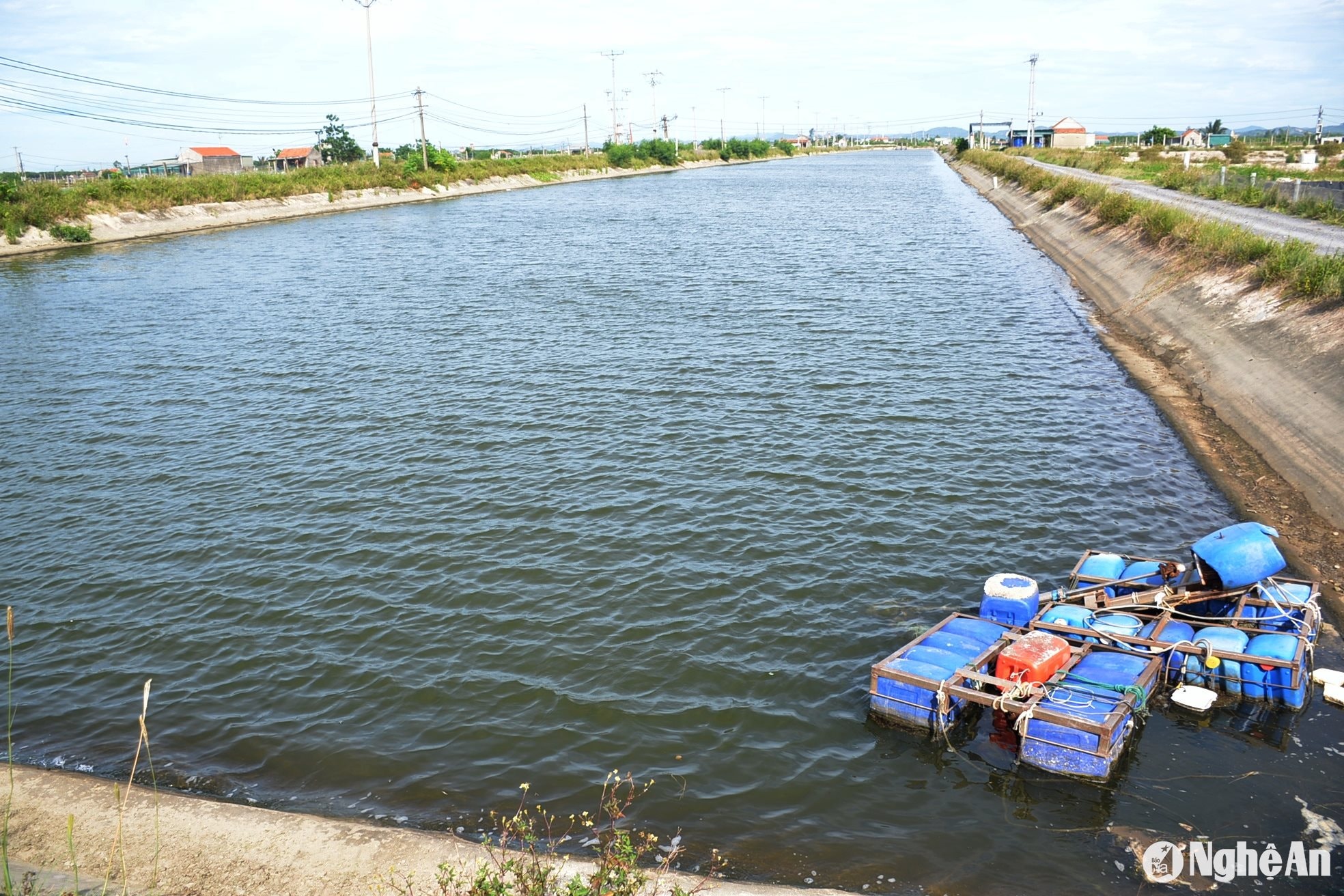
Brackish water shrimp farming is a profession that requires a large investment right from the time of releasing the shrimp, if the shrimp are infected with disease, it will cause great damage to the people. For many years now, farmed shrimp have often died due to disease, partly due to water pollution. Therefore, solving the water input stage, not using water from canals has been the desire of shrimp farmers for a long time.

